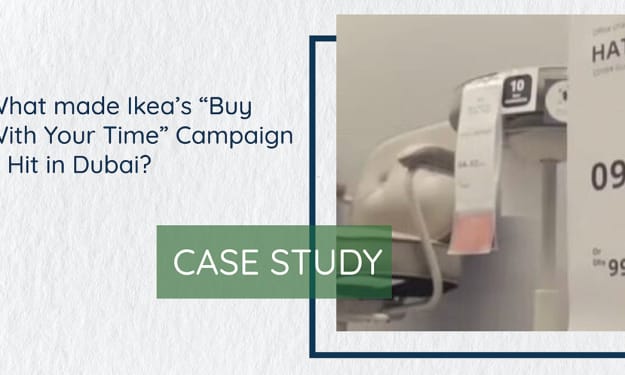
Keyword research is a crucial foundation of any SEO strategy. Finding the right keywords to target can help you drive more organic traffic, boost rankings, and increase conversion rates.
While there are many paid keyword research tools available, two of the most popular free options are Ubersuggest from Neil Patel and Google’s Keyword Planner. But which one should you use?
This in-depth comparison examines the key features and differences between Ubersuggest and Google Keyword Planner to help you decide which tool is better for your SEO keyword research needs.
Overview of Ubersuggest and Keyword Planner
Let’s first provide a quick overview of each tool:
Ubersuggest – Free keyword research tool that generates long tail variations of root keywords along with search volume, organic traffic data, and other metrics. Created by well-known internet marketer Neil Patel.
Google Keyword Planner – Free keyword research tool directly from Google as part of their paid advertising platform. Shows search volumes and suggested PPC bid estimates. Requires a Google Ads account.
Now let’s dive into the in-depth feature comparison:
Generating Keyword Ideas
One of the main uses for these tools is generating new keyword ideas during initial research.
Ubersuggest excels here. When you enter a root keyword or URL, Ubersuggest leverages search data to come up with hundreds of long tail keyword variations. The algorithm combs through what people are searching related to your root term and finds new ideas.
Keyword Planner also suggests keyword ideas, but in a much more limited capacity focused on close variants. You will typically get dozens, not hundreds of ideas.
Winner: Ubersuggest
Accuracy of Search Volume Data
Since Keyword Planner comes directly from Google Ads, its search volume data is highly accurate and frequently updated. The numbers align closely with actual search volumes.
Ubersuggest uses search data from multiple sources to estimate volumes. But these are not exact and may differ somewhat from actual figures.
Winner: Keyword Planner
Keyword Grouping
Keyword Planner lets you easily group keywords together into ad groups. You can see aggregated search volume data for the groups, which is helpful for PPC campaign planning.
Ubersuggest does not have any keyword grouping functionality. You can only view keywords individually.
Winner: Keyword Planner
Integrations and Analysis
A major advantage of Keyword Planner is its tight integration with Google Ads for PPC campaign planning. You can see suggested bid estimates and export keywords.
Ubersuggest lacks any integrations or further analysis features beyond the keyword data it displays. The focus is solely on generating ideas.
Winner: Keyword Planner
International Keyword Data
Ubersuggest provides keyword suggestions and search data for over 100 different countries. This makes it great for researching international SEO campaigns.
Keyword Planner also includes international data, but only for a limited subset of around 30 countries.
Winner: Ubersuggest
Organic Traffic Data
In addition to search volume, Ubersuggest shows an estimate of how much organic traffic a domain gets from a particular keyword. This helps give you a sense of difficulty and competitiveness.
Keyword Planner strictly focuses on search volume. There is no visibility into how much traffic sites are getting for keywords.
Winner: Ubersuggest
Additional Metrics
Beyond search volume and traffic, Keyword Planner also displays average CPC data, competition levels, and trends for keywords. This provides useful context.
Ubersuggest just shows search volume and traffic. There are no additional metrics.
Winner: Keyword Planner
Rankings Tracking
Some keyword tools like SEMrush allow you to track current keyword rankings and monitor changes over time. This helps guide optimization efforts.
Unfortunately neither Ubersuggest nor Keyword Planner provides any rankings tracking or optimization recommendations. They are limited to just keyword research.
Winner: Tie
Relevancy of Keyword Suggestions
Since Ubersuggest depends so heavily on search data, it sometimes generates keyword ideas that may be loosely tied or irrelevant to your root term. There is little control or filtering capability.
Keyword Planner’s suggestions tend to be much more tightly related to your seed keywords. But you do get fewer ideas.
Winner: Keyword Planner
Ease of Use
Getting started with Ubersuggest is very easy. Just plug in a keyword or URL and start getting ideas. No account or complex setup required.
Keyword Planner requires you to have an existing Google Ads account before you can use it. There is a bit more learning curve in navigating the interface.
Winner: Ubersuggest
Cost
Ubersuggest and Keyword Planner are both completely free to use with no limits. Most other robust keyword tools charge a monthly subscription fee.
Winner: Tie
Key Differences and Use Cases
Based on these comparisons, a few key differences and optimal use cases emerge:
Keyword Planner is ideal if you want to integrate keyword research into paid search campaigns due to its tight integration with Google Ads and robust PPC-focused data.
Ubersuggest is the better choice if you need lots of keyword suggestions and want international SEO data for many countries.
Keyword Planner provides more accurate and complete data, while Ubersuggest casts a wider initial net for ideas.
Ubersuggest is better for early broad research, Keyword Planner is better for focused PPC integration.
The Bottom Line
While both tools have their merits, Keyword Planner emerges as the stronger option if you have an existing Google Ads account and want to leverage robust PPC integration and accurate data.
But for purely SEO-focused keyword research, Ubersuggest provides more ideas from a wider range of countries. Just be aware the data is more estimated.
Ideally, you may want to leverage both tools at different stages:
Use Ubersuggest for initial broad keyword research and discovery.
Take keywords from Ubersuggest and analyze further with Keyword Planner for more accurate volumes and PPC statistics.
Populate ad groups in Keyword Planner with expansive Ubersuggest keyword lists.
So while Keyword Planner wins out overall based on PPC integration, accuracy, and analysis, Ubersuggest still adds value as a supplement for brainstorming broader keyword ideas.
If you only have time to master one tool, Keyword Planner is likely the better investment. But leveraging both certainly has advantages and provides the most comprehensive approach to research.
As two of the top free keyword tools available, Ubersuggest and Keyword Planner both have their place in an effective SEO keyword research workflow.






Comments
There are no comments for this story
Be the first to respond and start the conversation.